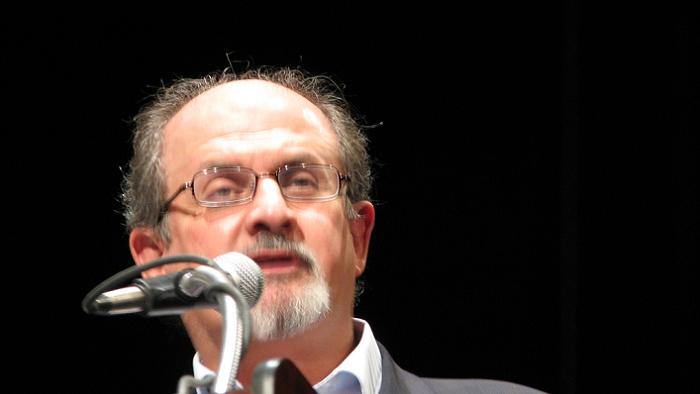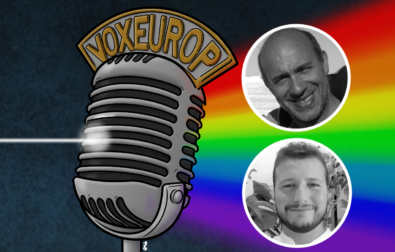Rushdie has been living under the threat of an Iranian fatwa since 1989 for his book "The Satanic Verses", which was deemed blasphemous by many Muslims, said he had not expected freedom of expression to come under attack again to this extent in the western world.
"It seems to me the battle for free expression was won 100 years ago," the 68-year-old told an audience at the opening of the Frankfurt Book Fair, under heavy security.
"The fact that we have to go on fighting this battle is the result of a number of regrettable, more recent phenomena."
After Islamist gunmen killed 12 people in January in an attack at the office of French satirical weekly Charlie Hebdo, which had mocked religions including Islam, Rushdie defended the murdered cartoonists.
He still faces criticism from his religious opponents: the Iranian Ministry of Culture canceled its national stand at this year's book fair because of Rushdie's appearance, and Saudi Arabia protested against a new Czech translation of "The Satanic Verses" only last week.
Rushdie criticized restraints on freedom of expression at universities, referring to recent examples in Britain and the United States. "The idea that students should not be intellectually challenged at universities is exactly what we should fight," he said.
The British Indian novelist, who went into hiding for years after the 1989 edict by Iranian leader Ayatollah Ruhollah Khomeini ordering Muslims to kill him, has resumed public appearances in recent years and was in Frankfurt promoting his new book.
"Two Years, Eight Months and Twenty-Eight Nights", a reference to the 1,001 nights of the famous Arabic tales, is described as a novel exploring the complexity of the world by weaving together history, mythology and love.
Rushdie told his audience that all people around the world could relate to stories, so limiting freedom of expression was not just censorship but an assault on human nature.
"It prevents us from being the kind of creatures that we are. It is not something which is specific to one culture. It is something universal to human beings," he said.
Sir Salman Rushdie called freedom of speech not just a human right but a “universal of the human race” which must be defended.
Rushdie was speaking today (13th October) at the official opening ceremony of the Frankfurt Book Fair. His talk was given amidst a heavy security presence after Iranian publishers pulled out of participating in this year’s FBF in protest of the author being invited to speak.
Rushdie is technically still under the fatwa, the religious edict first levied against him by Iran’s Ayatollah Khomeini in 1989 in response to Rushdie’s The Satanic Verses.
Rushdie told the FBF audience that having to talk about free speech disappointed him. He said: “We should not need to talk about freedom of speech in the West. It should be like the air we breathe. It seems to me that the battle was won a couple of hundred years ago…the fact that we have to go about fighting this battle is the result of more regrettable recent phenomenon.”
Rushdie said the challenge of free expression is the “arrival of danger” in the form of violence and threats against writers, publishers, booksellers and translators, which has engendered fear. The difficulty in the fight is “that publishers and writers are not warriors, we have not tanks. But it falls to us to hold the line”.
Fiction, Rushdie argued, can contest the “grand narratives” of nations and religions that fight against free speech: “Literature may be weak because it has no real power in the world, but in a way it is the grandest narrative of all, in that it puts ourselves into question with fiction. We challenge ourselves and refuse to take the world as a given. We challenge all correctives of opinion, all appeasements, all fears. Literature is the unafraid form.”
Introducing Rushdie, FBF director Juergen Boos expressed disappointment that the Iranian publishers decided to boycott the fair, but insisted dialogue must continue. “Freedom of speech is not a negotiable value,” he said. “It is at the core of what we do. Publishers and booksellers are speaking up for freedom and it is the bedrock of a democratic society.”
Corriere della Sera on Rushdie's speech (in Italian).
Süddeutsche Zeitung on Rushdie's speech (in German).
A conversation with investigative reporters Stefano Valentino and Giorgio Michalopoulos, who have dissected the dark underbelly of green finance for Voxeurop and won several awards for their work.
Go to the event >










